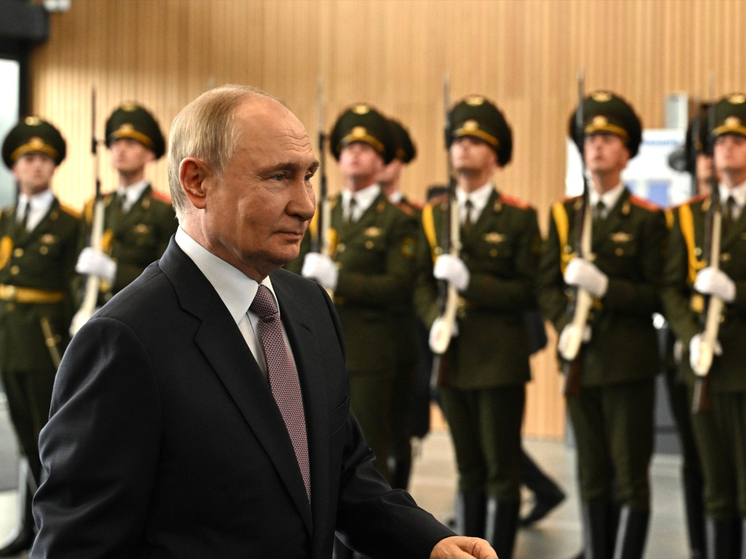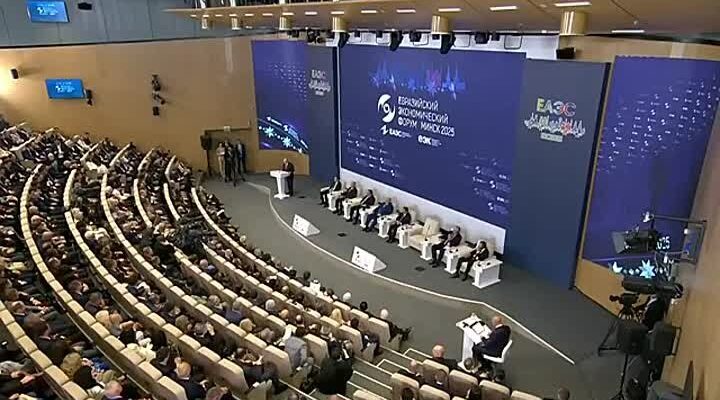The 10th anniversary of the EAEU was marked by a joint electric bus and customs issues on the Russian-Kazakh border.

Loud announcements about cancelling roaming between Russia and Belarus before March 1, 2025, turned out to be somewhat exaggerated. While there are free minutes for Russians in Minsk, they are either part of paid packages or subject to operator limits. As for mobile internet, it still costs money, and quite a lot. An operator offered the “MK” correspondent 1 GB for 700 rubles. (For comparison: in Russia, this amount buys 40 GB per month plus 1000 outgoing minutes. The difference is very significant).
The roaming situation clearly illustrates the complex relationships within the Eurasian Economic Union (EAEU), which is celebrating its 10th anniversary this year (the treaty signed in late 2014 came into effect on January 1, 2015). Officially, integration is strengthening, economic ties are expanding, and trade and administrative barriers are falling. But in reality, things are not so clear-cut or rosy. Just days before the summit, further problems arose on the Russia-Kazakh border. Despite the EAEU`s key principle of free movement of goods, inspection times for Russian cargo increased from one hour to three days (!) due to tightened requirements from Kazakh customs. (One reason is Astana`s desire to protect its own market from Russian products). Such “incidents” occur regularly within the economic bloc.
Another telling example is the EAEU electric bus. The idea was for member countries to jointly produce a vehicle for passenger transport. The project has been presented at various venues since 2023, but it has not truly become Eurasian. 80% of components are produced in Russia and Belarus. The remaining 20% come from China, which has nothing to do with the EAEU, but seems unavoidable. “For the electric bus to be called Eurasian, at least one of the remaining three countries of the `quintet` would need to join the project,” producers explained to the “MK” correspondent. In theory, Kazakhstan could supply fiberglass, sealants, and glue for the electric bus, Armenia transformers, and Kyrgyzstan radiators and metal structures. These countries possess the necessary competencies and specific suppliers exist. However, no real interest is being shown, the sources lamented.
Fortunately, the EAEU leaders, who inspected the prototype at the Eurasian Economic Forum site, seemed unaware of these problems. The electric bus was presented adorned with the totem animals of all five countries: Armenia was represented by a proud lion, Belarus by a stork, Kazakhstan by a soaring eagle, Kyrgyzstan by a snow leopard, and Russia, of course, by a brown bear. Alexander Lukashenko, in his plenary session speech, expressed confidence that the “quintet” states are indeed capable of creating a “unique Eurasian product.” Not just some electric bus, but an entire range – “from planes and trains to digital solutions and artificial intelligence.” “This is a fundamental condition for conquering and holding positions on the world stage,” declared Lukashenko. He stressed that a new phase in the bloc`s activities has begun in 2025 – EAEU 2.0 should not trail events but actively influence the global agenda and world markets, including through its own “branded” products.
Russian Presidential Aide Yuri Ushakov, previewing the forum`s plenary session, promised an original format, with leaders answering specific questions from a host instead of giving general speeches. Vladimir Putin was asked about EAEU cooperation with foreign partners and international structures. In this regard, the president mentioned the free trade agreement with Iran, which came into force in spring 2025. “God willing, the situation in the Middle East is calming down now. The conflict between Israel and Iran is also, thank God, we will consider it in the past,” Putin said, expressing hope that this would allow the EAEU to develop relations with Tehran as planned. According to the Russian leader, the union is open to partnerships with all interested countries – an similar agreement with the UAE will be signed tomorrow. Egypt, India, and Indonesia are also next in line.
The president was also asked to discuss the role of international financial institutions. However, Russia, as is known, has strained relations with them. Due to “well-known circumstances,” dialogue with the World Bank and other Western-centric financial institutions is currently “difficult” due to their “political bias.” “Moreover, we are actively seeking to reduce dependence on Western financial institutions, minimize the use of foreign payment instruments and services,” Putin emphasized. He made it clear that Russia supports the “regionalization of payment systems” and is even willing to pay to accelerate this process. “A significant amount of our gold and foreign exchange reserves is frozen in Western banks. And they constantly say they are going to steal this money. As soon as this happens, the movement towards regionalization of payment systems will undoubtedly accelerate and become irreversible. This is generally beneficial for the world economy. Perhaps it is worth paying for this,” Putin said, laughing. He reminded that the EAEU has its own financial institutions – the Eurasian Bank with a portfolio of $16.5 billion and a fund totaling $9 billion.








